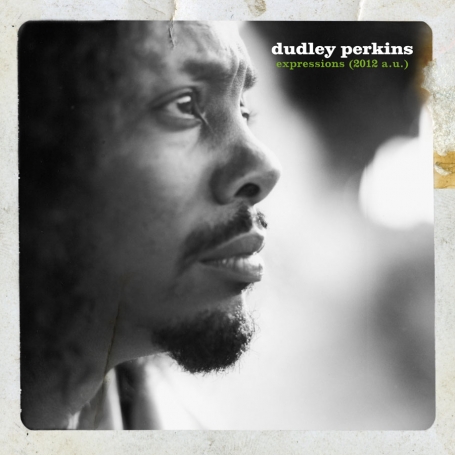Funkiness is a “you have it or don’t” quality, a kind of enigma, a certain je ne sais quoi. It’s like pornography: I can’t define it, but I know it when I see it, and this, my friends, is definitely a funk record. Dudley Perkins is to funk what Luke Skywalker was to the Force, and though a natural practitioner, not all of his funkiness was inborn. He cites the apostles of funk, James, George, and Sly as primary influences. He’s also influenced by marijuana, which is no surprise due to the fact that Madlib’s beats (which make up all the music on this disc) give the strongest contact high in hiphop.
This album, their second team-up under Dudley’s Christian name (he raps as Declaime), is only weird on the surface, only strange if you think about it too hard, and though both Dudley and Madlib have been accused of leading their audiences on wild goose chases from time to time, this is a focused record. The focus, though, is on looseness, which, as critics complained on 2004’s “A Lil’ Light,” can mean that the only apparent order this duo adheres to is disorder, yielding a confused, messy result that, at its worst, sounds like retarded potheads amusing themselves and nobody else.
However, this disc does not sound like the one-off novelty it could have devolved into. Dudley still rides the line between composition and improvisation, but doesn’t sound careless as much as he sounds carefree. He does a good job staying in character as a man convinced of the healing power of funk. Maybe he’s so convincing because he’s not acting, but if that’s the case, he’s doing a good job of being himself. Still, the bulk of this album’s success is shouldered by Madlib, who turns in some of the best beats of his career. Who better to make new funk out of old than the master digger, the soul historian, the beat konducta? Shit, Greenpeace should give Madlib a medal for all the recycling he does.
Madlib (the bad kid) will go down in history as the best cut-and-paste interpreter of other people’s music to ever live. He lets his beats sound like collages, allows the listener to hear the seams of the patchwork quilt, lets record hiss billow like smoke. He never does anything by the book, directly on the beat, or predictably; it’s like he’s scared of sounding “too perfect.” Every sound, though originally stolen or programmed, gets touched by his fingers or cut with his scissors, and from there on belongs to him. He screws around with volume and tone, muffling some sounds and brightening others, creating rhythm and dynamism in the elements he samples that previously didn’t exist. He then plays the mad conductor and leads his broken, bleeding, twisted sounds in a drunken symphony that lags, skips, stutters, and blurts. His bastardized beauties sound inebriated whether he is or not. He is the best example of how sampling is creative, and his style, as RR head Steve “Flash” Juon has said about the RZA’s, is so dirty, it’s clean.
So dirty, it’s clean. So ugly, it’s beautiful. Madlib’s drunken master style is what funk is all about: micromanaging rhythm around awkward pauses to sidestep plodding predictability. Taken as a whole his rhythms are, for all their complications and interruptions, served straight up on the snap, crackle and pop rocks. He’s all about getting the listener’s neck to snap, so it’s only natural that Dudley, himself a funky specimen, feels the vibe.
Dudley responds to the beats without inhibition, leveraging the openness and honesty of his delivery against the fact that he’s not really a “singer.” He makes clear that the sounds are his band, at one point calling sampled women his back-up singers, but eschews a leadership role in favor of “man possessed.” As he sing-raps about life, love, women and sadness, he dips heavily into funk-rhetoric cliché and often comes up short on lyrical content, but to analyze his lines on paper is to miss the point completely. His voice is nothing special either, but he doesn’t seem to be self-conscious about its shortcomings. He sangs more than sings, often harmonizing with himself on the slower songs to surprisingly good effect. Sure, it would have been cool to hear someone with amazing pipes (Cee-Lo would be perfect) over these tracks, but Dudley’s more of an everyman sent to Earth to show you that, if you just let it all hang out, you too will discover your inner funk.
In the end, the point of this disc is to uplift and medicate those going through life’s trying times, and if either Dudley or Madlib were anything less than earnest, the project would fall through. Fortunately, both are dedicated to the vibe and serious about levity. Both artists promote openness: Madlib through his transparent, show-your-work pastiche and Dudley through his lyrics and delivery, which, simple as they may be, revolve heavily around being yourself and responding honestly to your natural desires. The combination is, as intended, life-affirming music.

